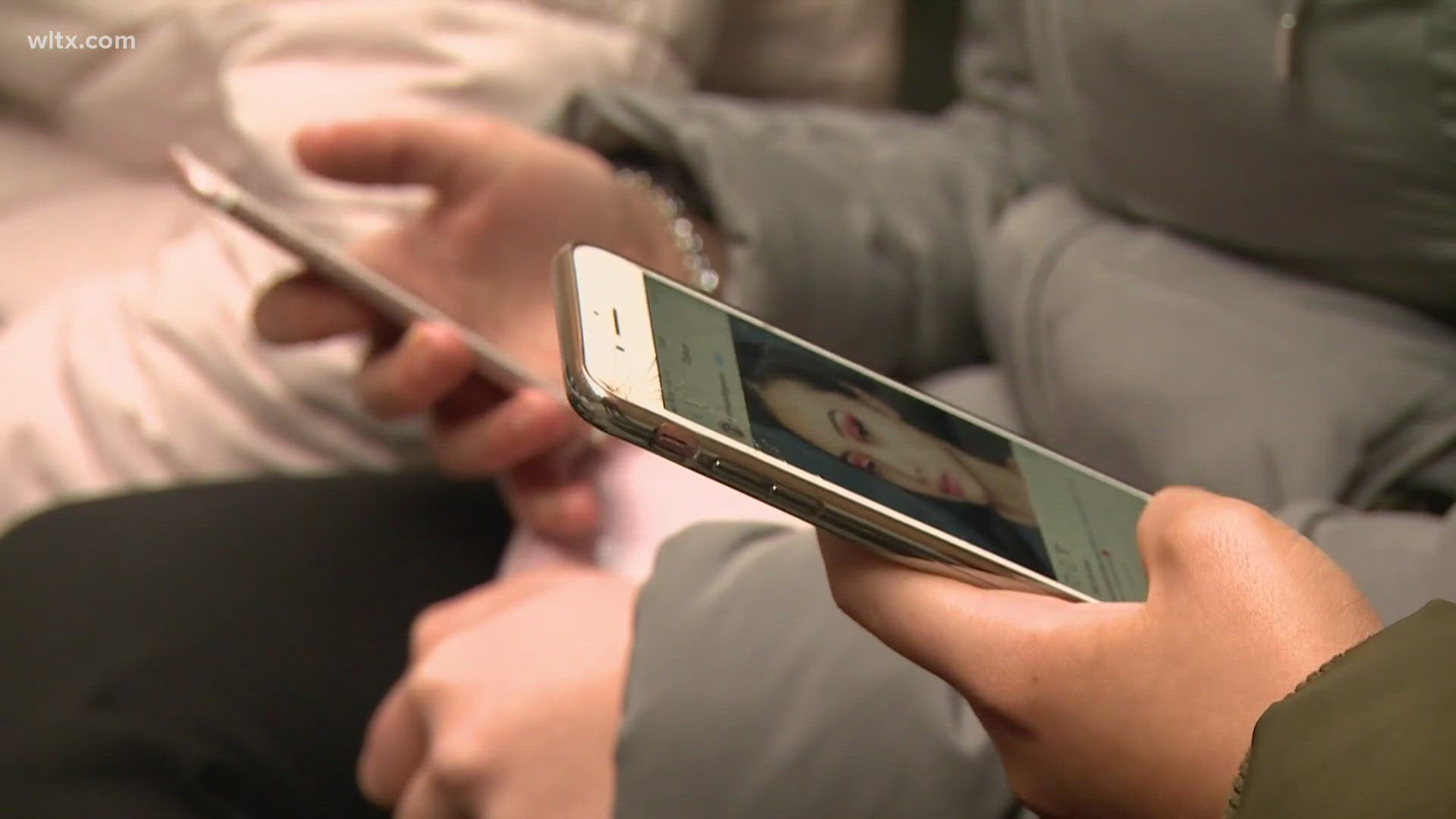COLUMBIA, S.C. — The State Board of Education is one step closer to a state-wide cell phone ban in all South Carolina schools going into effect, after members approved the first reading of the model policy today that all districts will be required to adopt.
The Department of Education drafted the policy for the Board to give final approval on, as required by a budget proviso that lawmakers passed this past legislative session.
The policy require students to store phones away in a locker or backpack for the entire day, even in between classes, as outlined in the proviso.
It's an important step, says Director of Government Affairs for the Palmetto State Teachers Association, Patrick Kelly.
"Yes it’s a distraction in the classroom but it’s also something that is contributing to heightened anxiety to mental health problems outside the classroom," said Kelly. “Whether that’s airdropping an embarrassing picture of someone or getting on social media and sparking a conflict. By taking student cell phones out of the equation from the school day we should see diminished problems in those areas.”
The ban extends to smart watches, tablets, and gaming devices, requiring them to be "powered off and stored as directed by the school district," according to the model policy. Other aspects will also be left up to the districts, including discipline measures and whether or not the ban extends to the entire school campus or even school busses.
While many parents may have concerns about being able to reach their child in an emergency, State Superintendent of Education Ellen Weaver says that cell phones are counterproductive in an emergency.
"We need our students paying full time and attention to the adults who are seeking to get them to safety. Those cell phones can also create misinformation amongst those parents and members of the community," Weaver says.
While the Board approved the reading, they're still able to modify the model policy before it's given a yay or nay at the second reading in September. Board Chairman David O'Shields said today in the meantime, he wanted to get more input from districts and stakeholders before giving a final approval on the policy.
Once implemented, school districts are required to adopt the model policy and implement it by January of 2025 to continue to receive their state funding.

